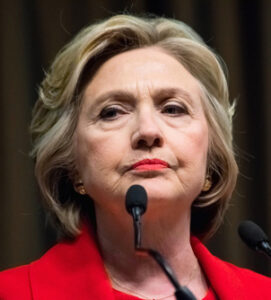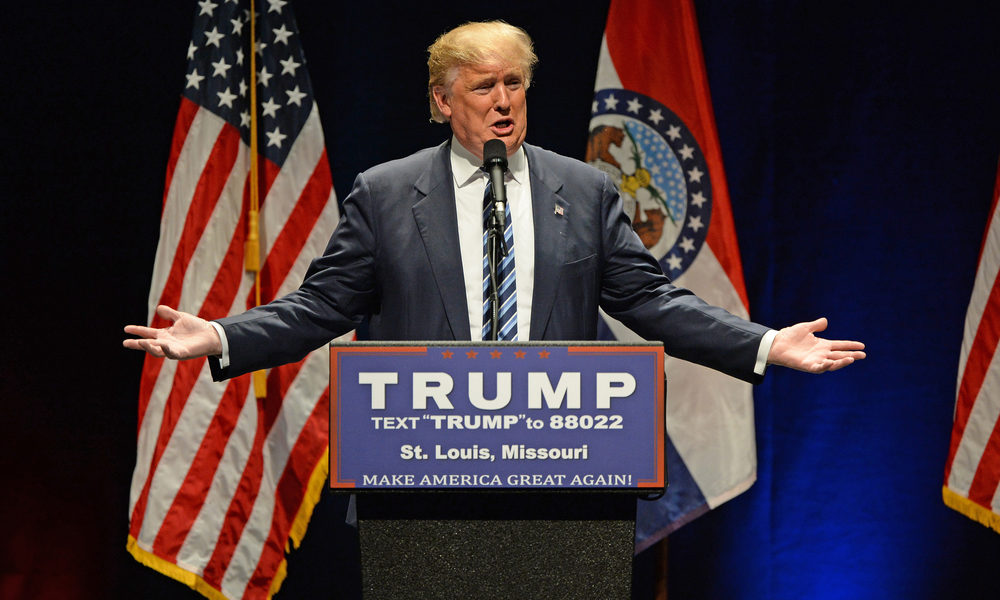
Almost exactly a year ago tweeted Hillary Clinton that she was upset about the overpricing of specialty drugs, and that as president she would address the issue: "Price gouging like this in the specialty drug market is outrageous. Tomorrow I'll lay out a plan to take it on". Since then, the Nasdaq biotechnology index has fallen by 27 percent. Since Clinton has long been considered the favorite to be the world's most powerful politician, it is not surprising that the market received the announcement as a de facto potential restriction on the pharmaceutical companies' ability to maintain current pricing strategies for drugs.
No signs that Trump wants to restrict pharmaceutical companies' pricing
The period since September 2015 has been characterized by a biotech market with fewer large deals, both in terms of number and total value, which BioStock has reported on previously. As the US is a world leader in all industries including Life Science, other markets have followed suit on this downward slope. The fact that Hillary Clinton, then seen as the likely next president, stated her intention to challenge Big Pharma and companies in general that overprice specialty drugs, may have definitely played a role in this development.
Donald Trump, on the other hand, has not had any clearly stated opinions about the state of affairs on this issue, and there are also no signs that he – who has at least outwardly been a strong critic of Obamacare – will prioritize any sudden attacks on the pharmaceutical industry after his unexpected election victory to restrict the current pricing policy.
Markets react as expected to Trump's victory
The expected broad declines in the financial markets in the event of a Trump victory are now a fact, and will likely persist for some time until Donald Trump reveals what he actually intends to pursue in terms of specific policy. With the support of both the House of Representatives and the Senate, he has good prospects for pursuing the classic policies that Republicans want to see, and it would therefore not be surprising if Trump tries to make peace with the Republican establishment. Here too, there are no clear dominant forces that want to tackle the overpricing of pharmaceuticals. Nor has pricing been a major issue among Donald Trump's new loyal fans.
A period of volatility and decline is followed by an expected recovery
It is now likely that we will continue to see at least a short-term decline with high volatility in the US market, and as a law of nature, other markets will follow suit. As always in these situations without major fundamentals supporting the decline, however, a scenario in which investor appetite increases again is likely to follow. Parallels can be drawn to Brexit, where demagogic and populist currents emerged victorious in the referendum, and despite a highly exaggerated tone that the British financial market would plunge into an abyss, this did not happen. It is not unlikely that we will see the same scenario in the US.
There is hope for the biotech market
A cautious diagnosis of “patient USA” is that after a medical examination it will rise and emerge stronger from this as well. That the country, on the other hand, has gigantic issues that have divided the nation in two to deal with is another five. It should also be borne in mind that Trump has promised to repeal the Affordable Care Act and replace it with “something better”, it is highly unclear what. This could lead to the entire US healthcare system being thrown into chaos, the impact of which on the Life Science sector is difficult to predict. At the same time, Hillary Clinton had promised to introduce a “risk fee” for the largest financial institutions if she became president, as well as to exercise greater supervision over Wall Street. However, we are unlikely to see such economic reforms during Trump’s presidency, possibly rather less stringent regulations for the listed American financial institutions and banks. A spillover effect of such a scenario could possibly occur in the Life Science market, with a subsequent increased risk appetite.
A cooperative Trump can calm the market
The uncertainty about which policies will be pursued entails a higher risk premium, and there are still a couple of months until Trump takes office. As the picture becomes clearer about which policies will be pursued, uncertainty in the markets will decrease. This in itself has a stabilizing effect, provided that it is a policy that is to some extent consistent with classic Republican values. At the same time, Trump promised in his victory speech this morning to become “a president for all Americans”, and whether this means that he is trying to bury the hatchet with a wing-clipped Democratic Party without a majority in either the Senate or the House of Representatives remains to be seen. Such a scenario could quickly have a calming effect on stock markets around the world. Finally, it should be remembered that Trump has previously actually spoken warmly about both classic Democratic policies and also about Barack Obama and the Clintons. Where he actually stands on policy is shrouded in obscurity, which is difficult to interpret, so the months leading up to his inauguration as the 45th President of the United States on January 20, 2017, could be decisive in determining whether biotech markets will go up or down.
Morgan Stanley predicts stronger development for the healthcare and pharmaceutical sectors
A small consolation in the current uncertainty came the other day in a new analysis report from the investment bank Morgan Stanley, which noted that the weak performance of pharmaceutical stocks may indeed continue for a period immediately after the presidential election, but that the sector has historically outperformed the market six months after the election. The report also states that from an industry perspective, a Trump victory would certainly not be risk-free, but still preferable:
“In principle, despite a presumed increase in general risk and market turbulence with a Trump victory, we believe healthcare stocks could be relative winners.”
 Get more news and analysis directly on your mobile with BioStock's mobile app!
Get more news and analysis directly on your mobile with BioStock's mobile app!






